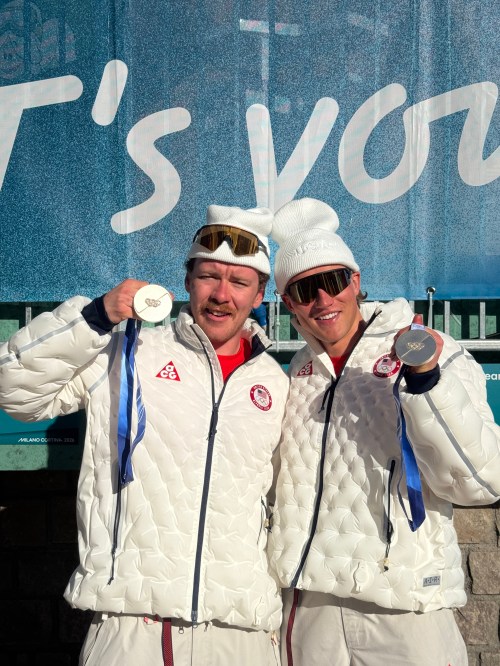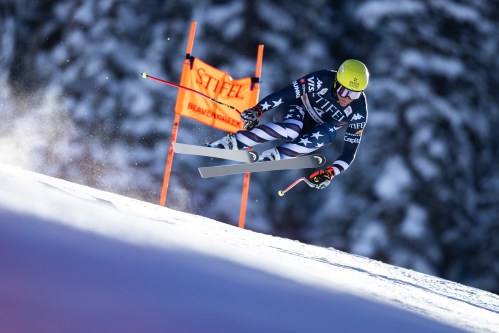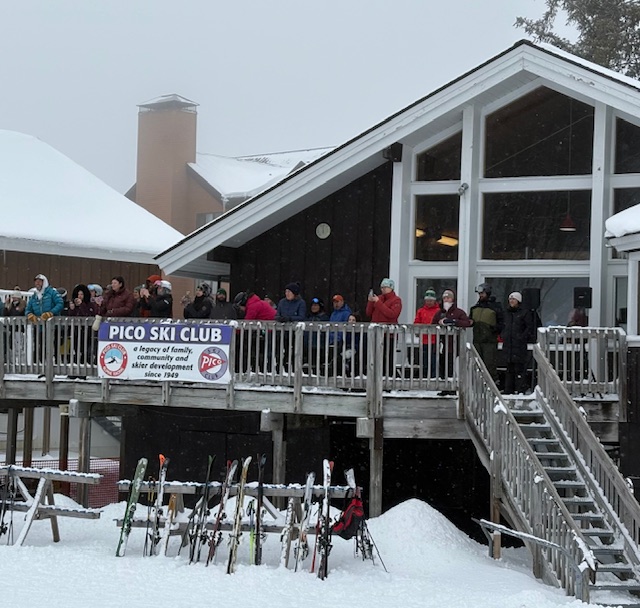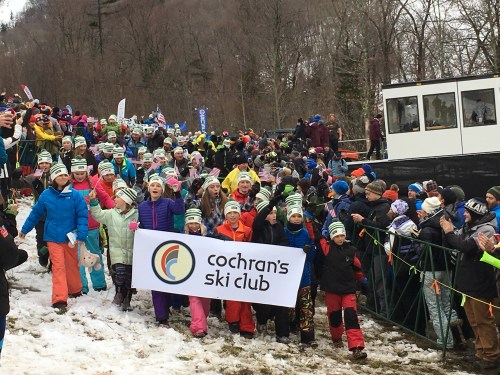
The United States hauled in 33 medals at the 2026 Winter Olympics, its most ever at a Games outside North America. If you think that’s impressive, consider that more than 20 percent of those went to athletes who grew up or trained in Vermont, a state with fewer residents than many mid-sized cities. That list includes Mikaela Shiffrin, Ryan Cochran-Siegle, and Paula Moltzan, who won gold, silver, and bronze medals respectively in alpine skiing; Mac Forehand, who got silver in freeskiing big air; and Ben Ogden (two silvers) and Jessie Diggins (a bronze) in cross-country.
Naturally, the national media went looking for a simple, pithy explanation. The New York Times wondered if there was something in the water (or fine, the snow). The Associated Press floated maple syrup as the secret sauce. That theory gets a boost from the fact that Cochran-Siegle’s clan owns Slopeside Syrup, which sells single-serve packets of syrup marketed as “all natural athletic fuel.”
But the real explanation is rooted deeper than tree sap and snow. It is based on the old-fashioned concepts of family and community, and a culture that treats winter not as an inconvenience but as infrastructure. Vermont doesn’t send more Olympians to the Winter Games per capita than any other state because the state is buried in snow. (Yes, it often is, though less reliably than it used to be.) It’s because when winter lasts half the year, you either resent it or organize around it. Similar to the Norwegians and their “joy for all” concept of athlete development, we Vermonters choose the latter.
To fend off cabin fever, we have a long tradition of getting outdoors and making the best of the cold and snow: ice fishing, snowmobiling, skiing in all forms, and snowboarding, too. (The first ski lift in the United States was built here.)
I’m an eighth-generation Vermonter, which is to say I was basically issued a pair of skis at birth. My mom had my sister and me wobbling around the backyard as toddlers, skis clipped on over snow boots. Our dad added figure skates to the mix. When we weren’t carving up ice, we were outside engineering questionable sled jumps and hurling ourselves off them with the confidence of children who assume snowbanks are soft.
My daughter came up through the Pico Ski Club program, where we volunteered with the cheerful masochism that defines winter parenting. (Gatekeeping in minus-15-degree windchill, anyone?) The friendships we made there have outlasted seasons, gear swaps, and growing pains. Around here, winter sports aren’t boutique hobbies or résumé padding for Olympic dreams. They’re what you do on a Saturday. Or a Tuesday after school.
For homegrown Olympic silver medalists like Cochran-Siegle and Ogden, their routes to the Olympics began not with corporate sponsorships but with parents in puffy jackets running youth programs on volunteer time. And those parents might just be NCAA champions and/or Olympic medalists themselves. In a small state like Vermont, with a limited tax base for public programs and few deep pockets, volunteer-run kid programs mean parents don’t have to have hedge-fund incomes to afford registration fees. At least not when kids are young.
Ogden grew up in Landgrove—a hamlet with more porcupines than residents—and started in the Bill Koch League, an all-volunteer cross-country ski program founded in 1977 after Vermonter Bill Koch became America’s first Olympic medalist in the sport. The goal there isn’t to mint Olympians. It’s to create lifelong skiers. Kids play games and race for lollipops. Parents treat Saturday practice as a social event and a chance to enjoy skiing themselves, ending with hot chocolate at the touring center.
It may take a village to raise a ski racer. In Vermont, it also creates one.
Talented athletes can graduate to one of the state’s ski academies, which function as finishing schools for skiing and snowboarding. Burke Mountain Academy, founded in 1970, has produced dozens of Olympians, Shiffrin among them. It was founded to meet a couple of needs: sell some midweek lift tickets and give kids who want to keep skiing through high school a place to both study and train. Other ski academies have popped up around the state. Stratton Mountain School counts Ogden among its alumni. Killington Mountain School recently sent snowboarder Jess Perlmutter to her first Olympics, where she finished sixth in slopestyle at age 16.
These academies draw ambitious teenagers from around the country. Shiffrin followed her older brother to Burke, and their mom moved to the village near the school. Forehand commuted from Connecticut every weekend before his family relocated full time. Vermont is happy to claim them all.
Some of these transplants never leave. Moltzan rediscovered her love of skiing after attending the University of Vermont. She stayed and bought a house in Waitsfield. “The Green Mountain State is the best state in the whole 50 states,” she said after winning the second run of the women’s slalom at the 2026 Games.
Ogden, a proud lifelong Vermonter, also stayed after graduating from UVM. He now skis professionally with Stratton’s SMS T2 team and often trains alongside current students. In Vermont, Olympians aren’t distant legends; they’re older teammates.
Diggins, now a four-time Olympic medalist, has long called the Stratton program home. She credits team dinners, send-off parties, and the feeling that entire towns are tracking her splits for helping to fuel her success. Ogden says he feels a “mental boost” from knowing his state is watching. In a small place, support isn’t abstract. After he won his second silver medal at the Milan Cortina Games, he said, “Vermonters have been such a huge part of my success this week and honestly, every other aspect of me.”
Cochran-Siegle’s pathway to success started way back with his grandparents. In 1960, Mickey and Ginny Cochran built a backyard rope tow on the hill behind their house in Richmond so their kids could ski after school without needing to drive an hour to one of the state’s larger ski areas. Over the next decade and a half, all four of their children would make the Olympics. Barbara Ann Cochran—Cochran-Siegle’s mother—won gold in slalom at the 1972 Olympics.

The Cochrans did not keep their ski hill to themselves. They opened it to the community. Lift tickets cost 25 cents. If a kid lacked proper gear, Ginny found it. If they were hungry, she fed them. In 1998, Cochran’s became a nonprofit. No child is turned away for lack of money. Families who can pay more do.
To keep things affordable, Cochran’s—and many of Vermont’s youth ski programs — runs on the backs of volunteers. That volunteerism isn’t incidental. Vermont consistently ranks at the top nationally for civic participation, with more than 40 percent of residents volunteering in some capacity. At a typical youth race, parents might be course marshals, timing officials, or simply extra eyes on the hill.
At Cochran’s, the family’s legacy still anchors the place. Barbara Ann, her siblings Marilyn and Lindy, and their extended families have coached there for decades. Two-time Olympian Jimmy Cochran now manages the hill. Their stated goal remains disarmingly modest: foster fun, not necessarily champions.
Asked what advice his mother gave him before winning both of his Olympic silver medals, at the 2022 and 2026 Games, Cochran-Siegle said it was very simple: “She just tells me to go out and have fun.” And what’s more fun than a tiny state dominating the world’s preeminent sporting event?








